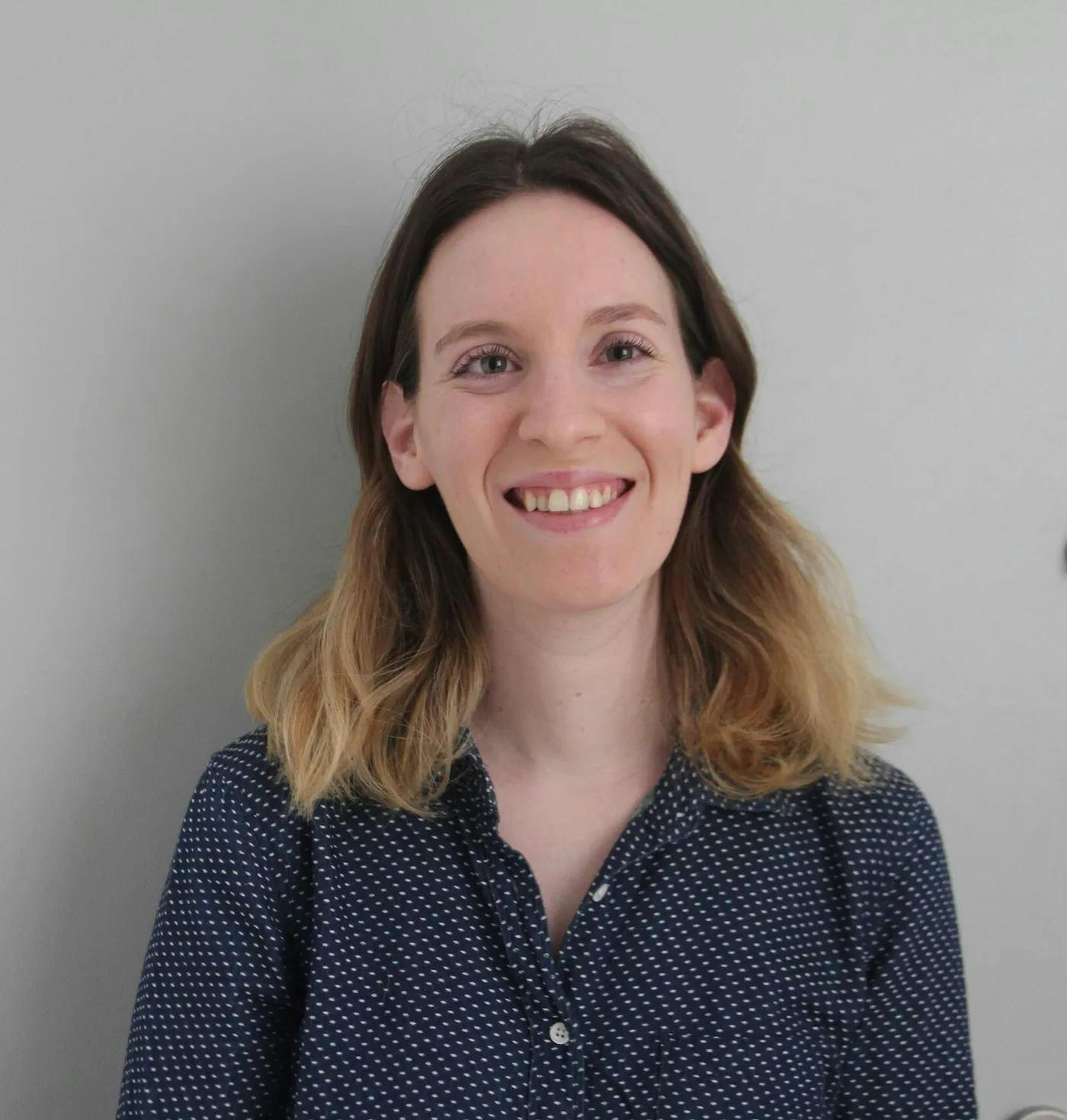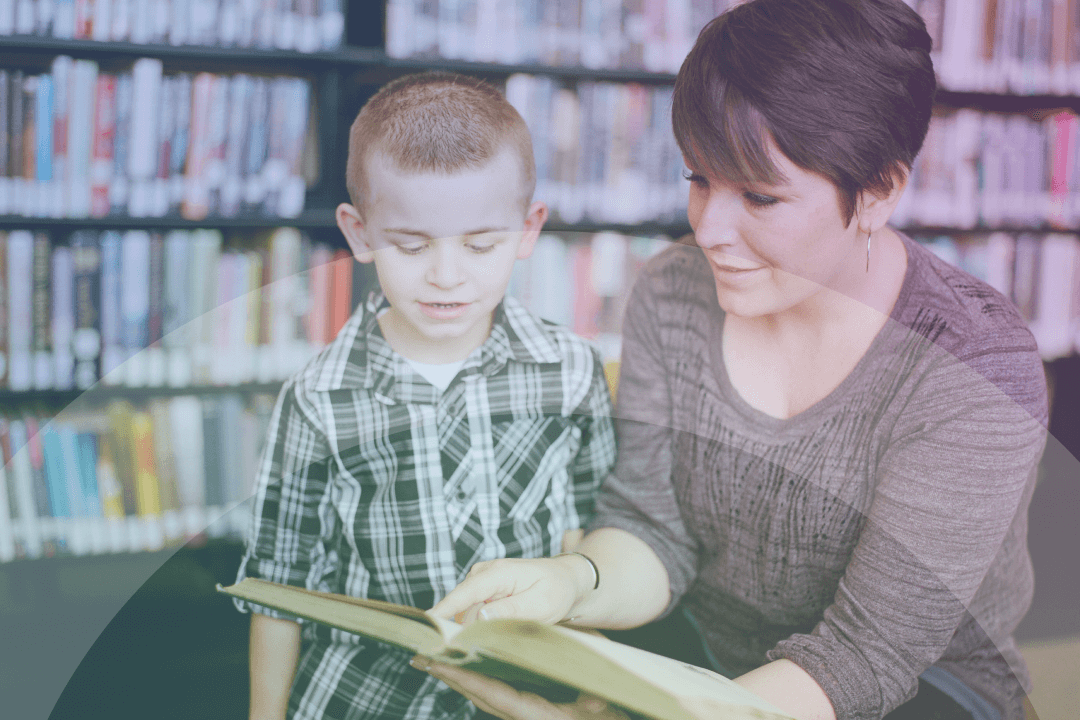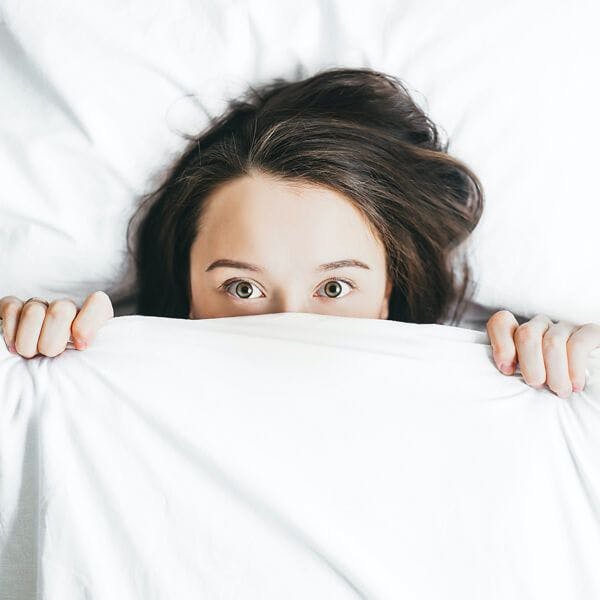Life can be very stressful. We all have our ups and downs. Whether it’s moving house, changing jobs or dealing with a difficult relationship, stress will inevitably strike.
When the usual stressors of everyday life become more severe and difficult to manage, it can turn into anxiety. In the US, nearly 20% of adults are suffering from anxiety at any given time.
While anti-anxiety medications can be effective, they only treat the symptoms of anxiety, rather than the root cause, so they are not an ideal solution in the long term. Also, medications can come with side effects, like weight gain, loss of libido or trouble sleeping. Many people prefer to treat anxiety without medication, using alternative treatments that are also shown to be helpful without any of the risks associated with pharmacological therapies.
These include lifestyle changes, psychological therapy and self-care activities, such as meditation and biofeedback. Let’s explore some of the effective, alternative ways to treat anxiety symptoms without meds:
Treating anxiety without medications
Regular exercise as a stress-reliever
When anxiety hits, the body’s ‘fight-or-flight’ response is heightened. The brain no longer differentiates between real physical danger and the imagined fear of danger. This causes many of the physiological reactions to stress, such as rapid heart rate, muscular pain and digestion problems.
Exercise is a great way to burn off some of this nervous energy. It raises the level of endorphins – the feel-good hormone – in the body, leading to a sense of calm and wellbeing. It also helps you take your mind off your worries, and relaxes and eases muscle tension.
Exercising regularly has been proven to reduce the symptoms of anxiety, and it is one of the first things a doctor will recommend if you want to treat anxiety without medications.
Types of exercises beneficial for anxiety
There is no one particular exercise that is recommended for anxiety. Any form of regular movement will be beneficial. Here are some types of exercise that can be helpful for anxiety:
- Walking or running: Walking or running is a great exercise to regulate your breathing and burn excess tension. No equipment is necessary (besides good running shoes!) and you can do it anywhere. Take it at a comfortable pace for you.
- Swimming: Swimming encourages deep, regular breathing, which is key to reducing anxiety. Some people find being in the water very soothing, and this can be very helpful in calming the sensations of anxiety.
- Yoga: Yoga is a well-known relaxation practice that eases muscle tension and builds both physical and mental strength and resilience.
- Dance: Dancing is fun and energetic, so it is perfect to take the mind away from worry and burn nervous tension. Learning dance steps is also a great distraction from anxiety.
- Weightlifting: This is a challenging and disciplined form of exercise that is ideal for burning nervous energy while building strength and confidence.
Creating an exercise routine
To effectively reduce anxiety, it is important to exercise consistently. The best way to do that is by establishing an exercise routine.
Creating an exercise routine will help turn exercise into a regular habit and a part of your lifestyle. Decide on a schedule, whether it be every day or three times a week. Put it in your diary and commit to it. Many people find that exercising in the morning is preferable. If you don’t have time in the morning, then make sure to finish exercising at least two hours before going to bed.
Exercising too close to bedtime can make it harder to fall asleep, and – as you’ll see below – healthy sleep is essential for reducing anxiety disorders.
Healthy eating habits and their impact on anxiety
You are what you eat, and this is certainly true when it comes to anxiety.
A healthy, balanced diet is a building block of overall health and wellbeing. Consuming a lot of processed food, empty carbs and sugar leads to unstable blood sugar levels. When blood sugar is too high, too low, or fluctuates a lot, this tends to cause mood swings and worsen symptoms of anxiety.
Overeating or undereating can also impact anxiety levels. Take care not to skip meals, which causes hunger, low blood sugar and irritability. Also, try not to overeat, especially in the evenings before going to sleep, as this can cause digestion issues and make it harder for the body to rest and repair as it needs to.
People who are anxiety-prone may be extra sensitive to stimulants such as coffee and alcohol. It is a good idea to limit or cut them out altogether and see if this helps to reduce anxiety,
Foods to include in a balanced diet
Be sure to include these foods to create a balanced, anxiety-reducing diet:
- Leafy greens and vegetables
- Low-sugar fruits, such as berries
- Complex carbohydrates, such as wholegrain breads, quinoa and lentils
- Fresh chicken and beef (not processed)
- Fresh omega-rich fish
- Eggs, nuts and seeds
- Calcium-rich foods, such as cheese and probiotic yogurt
- Lots of water to stay hydrated
- Herbal teas, preferably without sugar
Foods to avoid or limit for anxiety management
Life is meant to be enjoyed, and a healthy diet can include indulgences in moderation. However, take note that foods and beverages that are high in sugar, caffeine, and other stimulants may cause jittery nerves, restlessness and other anxiety-provoking sensations. To minimize the impact on anxiety, avoid these foods or limit them to special occasions rather than every day:
- Alcohol
- Sugary drinks and juices
- Coffee or high caffeine drinks
- Sweets & desserts
- Fried and/or high-sodium foods
- Empty carbs, such as white flour-based products
The significance of quality sleep for anxiety reduction
Everyone knows the awful feeling of a bad night’s sleep. Sleep is another building block of overall health and well-being. During sleep, the body heals and regenerates, and the immune system is strengthened.
Although it is not known exactly how or why, sleep and dreams are also essential components of mental health. People who have regular, high-quality sleep have stronger defenses to life’s stress and are more resilient to anxiety and depression.
Tips for improving sleep hygiene
Having high-quality sleep is an important part of treating anxiety symptoms without medication. By improving sleep, the body and mind are better equipped to handle stressors and cope with the difficulties that life may bring.
Fortunately, you can sleep better simply by changing your lifestyle and habits around sleep. It takes persistence and determination, but the rewards are enormous. Follow these sleep hygiene tips as part of your strategy for how to deal with anxiety without meds:
- Make sure your bedroom is neat and comfortable. Remember, clutter is stressful!
- Keep the room temperature at around 65 degrees F/18 degrees C. This is proven to be the ideal condition to promote good sleep.
- Invest in a good quality mattress and pillow. Some prefer soft, others prefer firm – as long as it feels right for your body, that’s ok.
- Stop eating a couple of hours before bedtime. Your body can’t rest if it is busy digesting.
- Avoid caffeine, alcohol and other stimulants that disrupt sleep. This is important all the time, but especially in the hours leading up to bedtime.
- Boost your circadian rhythm. Support your body’s natural desire to sleep at night by drawing the curtains so the room is dark. Avoid smartphone screens or stimulating lights before bed. Go to bed and get up at the same time every day. Aim for 7-8 hours of sleep every night.
- Use your bed for sleep and sex only. No eating, watching TV or arguing in bed. Create relaxing associations so your body knows that bed is for sleeping.
Using biofeedback devices
Although the symptoms of anxiety can occur all over the body, anxiety actually starts in the brain. Namely, in the amygdala, the primitive fear-detecting part of the brain. When a person feels stressed and worried, the amygdala triggers the parasympathetic nervous system into action, as a survival mechanism.
This causes the body to react as if there is immediate danger. The heart rate quickens, breathing becomes rapid and shallow, the muscles tense up, and blood flow is directed away from the digestive system to prepare the body to respond.
An effective way to prevent this anxious response is by changing the way the brain reacts to perceived danger. Biofeedback is a popular and effective method for how to treat anxiety without meds, but rather by retraining the brain.
During biofeedback, the individual is connected to a device that monitors and displays various physiological responses in real-time, including heart rate, muscle tension, breathing rate and more.
While wearing the device, the person practices guided relaxation exercises and learns how to calm their physiological responses as they occur. This knowledge can then be used in everyday situations to cope better with stress and anxiety as it arises.
There are biofeedback devices available for self-treatment at home, without needing a therapist in attendance. The Reflect Orb is extremely easy to use, as it does not require you to apply any sensors to the body as most biofeedback devices do.
Simply place your hands on the orb, practice relaxation or meditation, and the device will track your physiological response directly through your palms. This makes it an extremely powerful and effective tool in treating anxiety without medication.
Cognitive-Behavioral Techniques for Anxiety Relief
Because anxiety originates in the brain, cognitive-behavioral therapy is one of the most effective alternatives for anxiety treatment without medication. Let’s explore why and how it works.
Understanding cognitive-behavioral therapy (CBT)
Negative thinking and distorted beliefs are key drivers of stress and anxiety. Negative thoughts tend to lead to self-defeating behaviors, which only make anxiety worse. Cognitive Behavioral Therapy (CBT) is a psychology-based treatment that helps individuals become aware of negative thought patterns and behaviors, and then take steps to alter them.
In a review of clinical trials of over 4000 participants, CBT was shown to reduce anxiety in the 12 months after completion of treatment. Over time, CBT can help build resilience to future triggers and create a healthier response to stress and anxiety.
Identifying and challenging negative thoughts
It’s 2 am. You are suffering from anxiety-induced insomnia, and you’ve been lying in bed for hours, tossing and turning in fear and frustration. Many thoughts race through your mind, including these: “I can’t sleep, I won’t cope at work tomorrow. How will I manage to get everything done on no sleep? I’m never going to be able to fall asleep!”. Naturally, these kinds of thoughts will make it even harder to relax and fall asleep.
With CBT, the individual works with a therapist to identify negative thoughts, and methodically challenge them, one-by-one. This process helps them let go of catastrophic thinking, replace negative thought patterns with positive ones, and create a more balanced perspective.
By questioning irrational fears and seeing them for what they are (fleeting thoughts, not reality!), the individual learns to put anxiety in its place, and cultivate healthier behaviors that reduce rather than increase anxiety.
Practicing relaxation techniques
The body and mind are intimately connected, so a relaxed body will help to calm the mind – and vice versa. A holistic approach to reducing anxiety without meds will take both the mind and body into account.
While CBT teaches you how to identify and change negative thoughts, relaxation techniques are an important tool to train the body to calm its anxious response. Here are some techniques to try:
Deep breathing exercises
When a person feels anxious, their breathing becomes rapid and shallow. This reduces the amount of oxygen in the blood, leading to many of the uncomfortable symptoms of anxiety, like dizziness, lightheadedness and increased heart rate. One of the quickest and most effective ways to calm an anxiety response is by practicing deep breathing.
Here’s how: take a deep breath through the nose, counting to 5. Breathe deeply and slowly, making sure to fill the lungs. Hold for 2 seconds then release slowly through the mouth to the count of 5. Repeat 5 times. You can do deep breathing anywhere and anytime you need to reduce anxiety, or just to increase your sense of wellbeing and relaxation.
Progressive muscle relaxation
Progressive muscle relaxation is an effective and med-free technique to reduce muscle tension and create a sense of calm throughout the body. It helps the individual to become more aware of how the muscles automatically contract and tense up in response to stress, leading to headache, neckache, backache and other physical symptoms of anxiety.
To practice PMR, find a quiet space, lie down and close your eyes. Working from the toes upwards, slowly tense and then relax each muscle group. Hold the muscle tense, and then actively release it.
Focus on the physical sensation of relaxation for every muscle, progressing throughout the entire body. Training the brain this way to consciously relax the muscles is a powerful technique for how to treat anxiety without medication.
Mindfulness meditation
Mindfulness meditation is an ancient mind-body practice that originated in eastern culture and has become prevalent throughout the world as an effective technique for how to manage anxiety without medication.
The purpose of mindfulness meditation is to become aware of one’s thoughts and feelings as they arise, without judgment. By neutrally observing our inner world, we can learn to accept difficult feelings and let them go more easily.
For those suffering from anxiety, mindfulness meditation is highly recommended as a daily practice for how to manage anxiety without medication, and to reduce anxiety in the long-term.
Can anxiety be treated without medication?
The short answer is yes, anxiety can be treated without medication. Many people find enormous relief from anxiety disorder by changing their diet and exercise, getting better sleep and turning to proven mind-body techniques such as mindfulness meditation, cognitive-behavioral therapy and biofeedback.
If you prefer to go the alternative route to managing anxiety, try these methods and start reaping the benefits of an anxiety-free life.
Frequently Asked Questions
- How long does it take to see results from alternative anxiety treatments?
- There are no ‘quick fixes’ when it comes to anxiety treatment, and each individual will see results at different times. Reducing anxiety is a long-term goal, and it is important to develop healthy lifestyle habits and practice relaxation techniques on a regular, consistent basis. Some people may start to benefit from non-medication based anxiety treatments after even a few weeks.
- Are natural remedies safe and effective for anxiety management?
- Natural and non-invasive techniques for anxiety management, such as CBT and mindfulness meditation, are completely safe. They are shown to be effective in certain people. Before trying any new treatment for anxiety, make sure to consult with your physician or therapist.
- Can lifestyle changes alone cure anxiety?
- Many people have been able to cure anxiety symptoms with lifestyle changes alone. Others find that a combination of lifestyle changes and mind-body relaxation techniques help reduce anxiety. For some people suffering from severe anxiety, professional treatment may be required.
- Is cognitive-behavioral therapy effective for all types of anxiety disorders?
- Clinical research has shown that CBT is effective for a wide range of anxiety disorders. However, anxiety is a highly individual experience, and there is no single approach that is right for everyone. Consult with your physician or therapist to determine whether CBT or another type of treatment is right for you.




